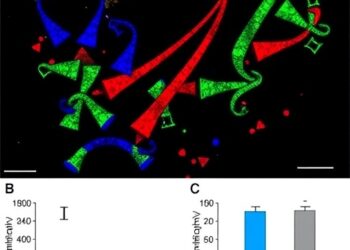A new study from Duke-NUS Medical School has highlighted the widespread use of physical restraints among caregivers of older adults with advanced dementia living at home, revealing a need for better guidance and alternative care approaches. Nearly half (47%) of the caregivers surveyed reported physical restraints were used on family members with dementia, pointing to a gap in support and resources.
A new study from Duke-NUS Medical School has highlighted the widespread use of physical restraints among caregivers of older adults with advanced dementia living at home, revealing a need for better guidance and alternative care approaches. Nearly half (47%) of the caregivers surveyed reported physical restraints were used on family members with dementia, pointing to a gap in support and resources.
In Singapore, the ageing population is growing rapidly, with those aged 65 and older expected to comprise nearly a quarter of the population by 2030[1]. Among this demographic, at least 10% are expected to develop dementia[2]. While the use of restraints has been extensively studied and largely prohibited in nursing homes in other countries, this study is the first to examine their prevalence and the factors leading to their use in home settings, where the majority of older adults with dementia in Singapore receive care.
Assistant Professor Chetna Malhotra from the Lien Centre for Palliative Care at Duke-NUS, who supervised the study, said:
“The care of older adults with severe dementia presents unique challenges, especially when physical restraints are involved. These practices, while sometimes used out of a perceived necessity for safety, can impact older adults’ physical and psychological health. It has also been associated with depression, post-traumatic stress, incontinence and increased rate of cognitive decline.”
The study, published in the Journal of the American Geriatrics Society, surveyed 215 family caregivers of patients with advanced dementia. The participants were recruited from public hospitals, home care foundations and hospices between May 2018 and March 2021.
The researchers found that common types of restraints used included belts or sheet ties (56%), locked geriatric chairs with fixed tray tables (35%), hand mittens (31%) and ankle or wrist ties (25%). The most common reasons for using these items were: safety (protection from falls and preventing of wandering), preventing removal of catheters or feeding tubes and managing agitated behaviour.
However, the research team pointed out that feeding tubes have not been shown to improve quality of life or prolong survival for older adults with severe dementia. Instead, clinical guidelines recommend careful hand feeding.
Likewise, agitation is a complex response behaviour that can be particularly taxing for caregivers when accompanied by irritability, restlessness or in rare cases, violence. It also signals unmet needs or a deterioration in health. Caregivers may need help to identify the source of the behaviour and come up with a way to manage it (e.g., reducing noise levels or playing soothing music) that provides compassionate and responsive care while avoiding restraints.
Survey respondents were divided on how physical restraints affected older adults’ quality of life with 39 per cent suggesting it was not affected, 44 per cent indicating reduced, and 17 per cent indicating improved.
The study also found that caregivers who had strong emotional support from friends were less likely to report restraint use. On the other hand, caregivers with higher psychological distress, or who had other caregiving responsibilities, were more likely to report restraint use.
Dr Ellie Bostwick Andres, first author of the paper and a senior research fellow from the Lien Centre for Palliative Care at Duke-NUS, said:
“There is a concern for caregivers under pressure without adequate support. Many caregivers, struggling to balance employment and caregiving, view restraints as a necessary measure for safety. Unfortunately, they might not be fully aware of the detrimental effects these can have on their loved ones.”
Professor Patrick Tan, Senior Vice-Dean for Research at Duke-NUS, said:
“As Singapore confronts the challenges of an ageing population, understanding the use of restraints in home care is critical. This study not only raises awareness but also calls for a shift towards more supportive approaches to dementia care at home, ensuring better outcomes for older adults and their families.”
Duke-NUS is a leader in medical research and education, with a commitment to improving patient care through innovative scientific discovery. This study is part of its ongoing efforts to enhance palliative care research and education, especially for patients with neurological conditions in our ageing population.
This work was supported by the Singapore Ministry of Health through the National Medical Research Council Office, MOH Holdings Pte Ltd, under its Health Services Research Grant (NMRC/HSRG/0081/2017), and Lien Centre for Palliative Care Research Award.
[1] Population in Brief. 2021.
Journal
Journal of the American Geriatrics Society
Method of Research
Observational study
Subject of Research
People
Article Title
Caregiver‐reported use of physical restraints among community‐dwelling older adults with severe dementia in Singapore
Article Publication Date
29-Feb-2024




